Join us for the only dedicated paramedicine conference in Australasia. The Australasian College of Paramedicine International Conference (ACPIC25) is designed to inspire, educate and broaden horizons.
Hotel Grand Chancellor
Brisbane

Shell Piercy serves as the Chief Paramedic Officer for the Northern Territory - only the second such position established in Australasia. She is also notably the second female to hold this prestigious role. With a distinguished career spanning paramedicine and nursing, Shell’s leadership is shaped by decades of hands-on clinical experience in pre-hospital, emergency, military, wilderness, remote, and urgent care settings across Australia, New Zealand, and internationally. Her expertise includes rural and remote healthcare, trauma, and resuscitation, developing nation ambulance and rescue, disaster medicine, complemented by significant roles as an executive, educator, clinical leader, research assistant, and consultant.
Shell’s academic achievements include a Bachelor of Nursing from Massey University, a Bachelor of Health Science in Paramedicine from Auckland University of Technology, and postgraduate study in research, emergency nursing, paramedicine, and business. Her commitment to advancing the profession is evident in her strategic vision for integrating paramedics into multidisciplinary healthcare teams and expanding their scope beyond traditional ambulance services, particularly in remote communities.
Personally, Shell is the sole parent to two adult sons, each following their passions in the world. Her passions include travel, outdoor pursuits, and adventures to distant lands, often at the intersection of remote work, adventure, and spending time with the kids. Family holidays often involve taking on volunteer work in developing nations.
Shell is driven by a passion to make meaningful change and improve patient outcomes, drawing on her dual backgrounds in nursing and paramedicine. She is recognized for her collaborative approach, dedication to professional development, and advocacy for qualitative, patient-centred care.

Dr Dinesh Palipana OAM was the first quadriplegic medical intern in Queensland and the second person to graduate medical school with quadriplegia in Australia. Dinesh is a doctor, lawyer, disability advocate, and researcher.
Halfway through medical school, he was involved in a motor vehicle accident that caused a cervical spinal cord injury.
As a result of his injury and experiences, Dinesh has been an advocate for inclusion. He is a founding member of Doctors with Disabilities Australia.
Dinesh works in the emergency department at the Gold Coast University Hospital. He has completed an Advanced Clerkship in Radiology at the Harvard University and is a senior lecturer at the Griffith University and adjunct research fellow at the Menzies Health Institute of Queensland. He is a research fellow at the Jamieson Trauma Institute. Dinesh is a researcher in spinal cord injury. He is a doctor for the Gold Coast Titans physical disability rugby team. Dinesh is a senior advisor to the Disability Royal Commission. He is an ambassador to the Human Rights Commission’s Includeability program. He was a 2021 International Day of People with Disability ambassador.
Dinesh was the Gold Coast Hospital and Health Service’s Junior Doctor of the Year in 2018. He was awarded the Medal of the Order of Australia in 2019. He was the third Australian to be awarded a Henry Viscardi Achievement Award. He was the 2021 Griffith University Young Alumnus of the Year.
He is the author of Stronger, how losing everything set me free, published in 2022.
Dr Dinesh Palipana OAM is the 2021 Queensland Australian of the Year.
In 2023, Dinesh joined the advisory board of healthylife where he uses his experience and skills to provide expert health information and advocate for the health of Australians, and became a John Monash Scholar.

Sherlyn Hii is an early-career paramedic, registered nurse and research candidate based in Melbourne, Australia. She made a late start in health care after spending more than a decade in motion picture film production. She works clinically as an ALS paramedic for a jurisdictional ambulance service and as a registered nurse in a busy tertiary centre. More recently, Sherlyn has started working in clinical policy development where she enjoys the opportunity to help drive meaningful change. Her long-term goal is to improve global health equitably with research. Her current Master of Research project investigates the epidemiology of ambulance responses to out-of-hospital birth in Papua New Guinea.

Michelle (she/her) is a proud Yorta Yorta woman who is passionate about creating a culturally safe environment for Aboriginal & Torres Strait Islander staff & patients. Michelle started as an Aboriginal Cadet at Ambulance Victoria (AV) and went on to become an Advance Life Support (ALS) Paramedic. Michelle became the Aboriginal and Torres Strait Islander Program Lead at AV in the Diversity and Inclusion Team. She is committed to making the prehospital setting culturally safe for all Aboriginal & Torres Strait Islander patients.

Cameron is a dedicated healthcare professional with a diverse background in emergency ambulance services and aviation. He has held key leadership roles, including Group Operations Manager, National Māori Health and Equity Manager (acting), and currently serves as Volunteer Support Manager for Hato Hone St John alongside Chief Pilot - Training & Operations Manager at Skydive Tauranga. Cameron leads cultural advisory efforts across HHStJ, working closely with iwi and Māori communities to advance health equity. His commitment to culturally responsive care and relationship-building makes him a trusted advisor and respected voice in the sector, frequently speaking at national ambulance and health forums.

Nigel Barr is a Registered Paramedic and an Associate Professor at the University of the Sunshine Coast (UniSC). He is the Discipline Lead for Paramedicine and Urgent Care. His research interests include health service delivery models, urgent care, paramedicine, interprofessional education, and infection control, with publications in high-impact journals.

Paul is the Editor in Chief of Paramedicine, the international research journal, and a researcher who has published widely. He initiated the Peer Review Mentoring Program (PRMP) for the journal and College, and is committed to enhancing quality and rigour in all aspects of research in paramedicine.

Rachael is a Lecturer in Paramedicine and the Academic Program Advisor for Paramedicine at Western Sydney University. She holds a Bachelor of Medical Science from the University of Sydney, as well as a Bachelor of Health Science (Paramedicine) and a Master of Research from WSU. In 2024, she commenced her PhD, focusing on integrating technology-enhanced methods, including artificial intelligence, into simulation education. As a registered paramedic, she has worked with ambulance services nationally and internationally.

Jake Donovan is a MICA Paramedic with 13 years of frontline experience. He is currently undertaking a PhD investigating the clinical utility of ultrasound in paramedicine. Jake holds a Certificate of Allied Health Performed Ultrasound with credentials in eFAST and vascular access, as well as a microcredential in lung ultrasound from Monash University. He has delivered hands-on POCUS training to prehospital clinicians, integrating clinical practice, education, and research to support the safe and effective use of ultrasound in emergency care.

Paul is a distinguished leader in paramedicine, currently serving as the Principal Advisor for Pre-Hospital Care within the Northern Territory Government, operating under the Office of the Chief Paramedic. With a career spanning continents and contexts—from remote outposts and war zones to high-stakes rescue swimming operations—Paul brings a wealth of international experience in community extended care and intensive care paramedicine. His commitment to advancing healthcare in challenging environments is underscored by his Fellowship with the Royal College of Surgeons of Edinburgh, awarded through the Faculty of Remote, Rural and Humanitarian Healthcare. This prestigious recognition reflects his deep expertise and contributions to healthcare delivery in austere and resource-limited settings. Paul is a passionate educator and mentor, dedicated to fostering the next generation of paramedics and elevating the standards of the profession. His work is driven by a steadfast belief in the power of education, mentorship, and continuous professional development to transform pre-hospital care and improve patient outcomes.
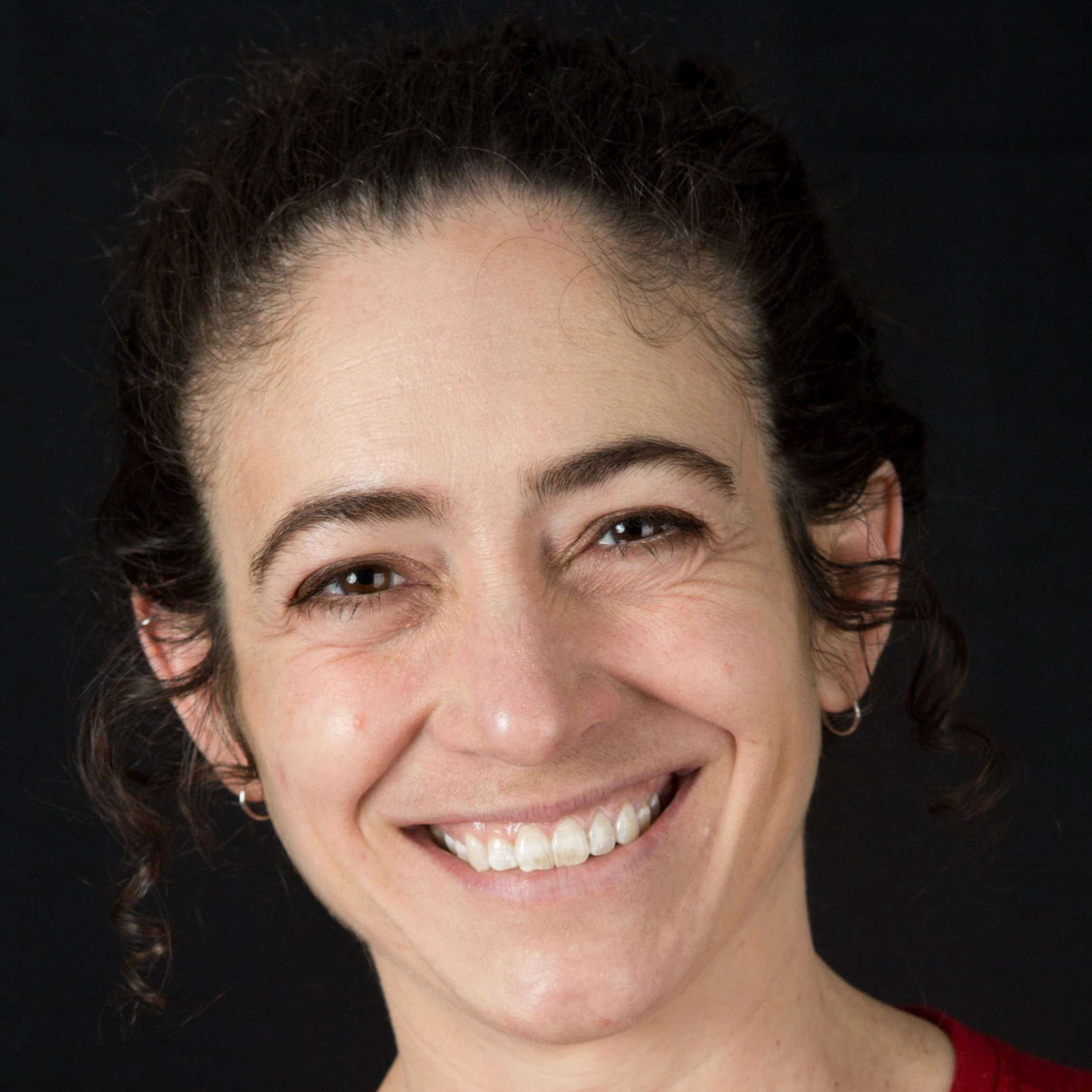
Dr. Elizabeth Donnelly holds a PhD in Social Work, a Master of Social Work (MSW), and Master of Public Health (MPH). Dr. Donnelly is a Licensed Independent Clinical Social Worker (LICSW) and a Scientist with the McNally Project for Paramedicine Research. Dr. Donnelly’s research efforts center around understanding and improving workforce health and wellbeing in paramedicine. Her research is driven by her experiences with front-line work; she has maintained certification as Nationally Registered Emergency Medical Technician (NREMT) for over 25 years. More information is available at www.elizabethdonnelly.com
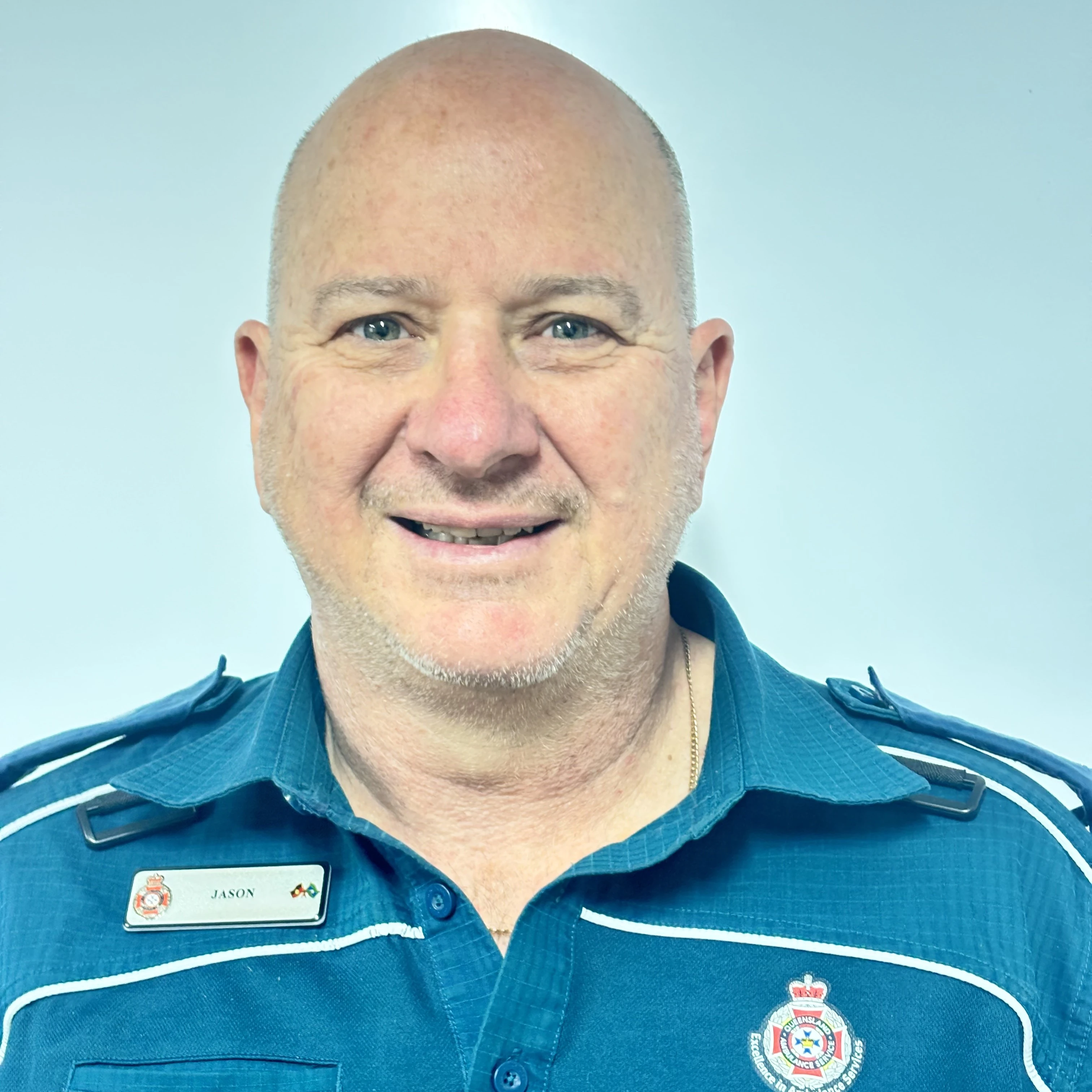
With more than 35 years of service, Jason Dutton is the Officer in Charge at Woodridge and Logan Hospital stations and a highly respected leader in his field. His career has taken him across Queensland in a variety of roles, and most recently to Vanuatu, where he deployed as part of Australia’s earthquake disaster response team as an Urban Search and Rescue paramedic. Away from work, Jason’s lifelong love of rugby union has seen him play for over 20 years before moving into sports medicine. For the past 15 years, he has been a dedicated supporter of the game, working with junior and senior rugby teams and sharing his passion both on and off the field
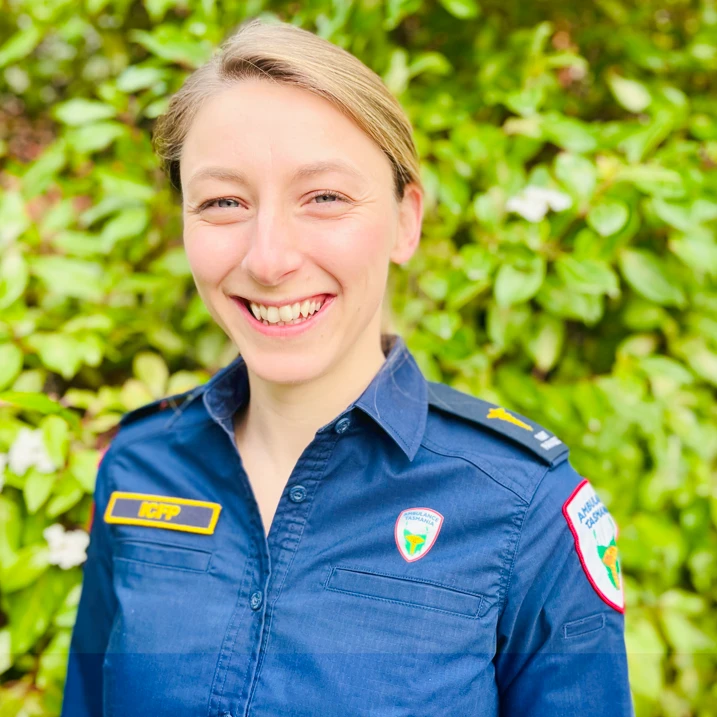
Lucy Oatley is an Intensive Care Flight Paramedic based on the Westpac rescue helicopter in Hobart, Tasmania. Lucy completed her undergraduate degree at Queensland University of Technology in 2014 before commencing her career with the Queensland Ambulance Service in Brisbane. In 2017, Lucy relocated to Tasmania, completing her Intensive Care training with Ambulance Tasmania in 2020. Lucy has since worked in patient facing clinical duties and in project management roles within the Clinical Services division of Ambulance Tasmania, before moving onto the helicopter in 2022. Lucy has a keen professional and research interest in the provision of reperfusion therapy in the out of hospital setting, and the challenge of delivering high level clinical care across the predominately regional and often remote island state of Tasmania.
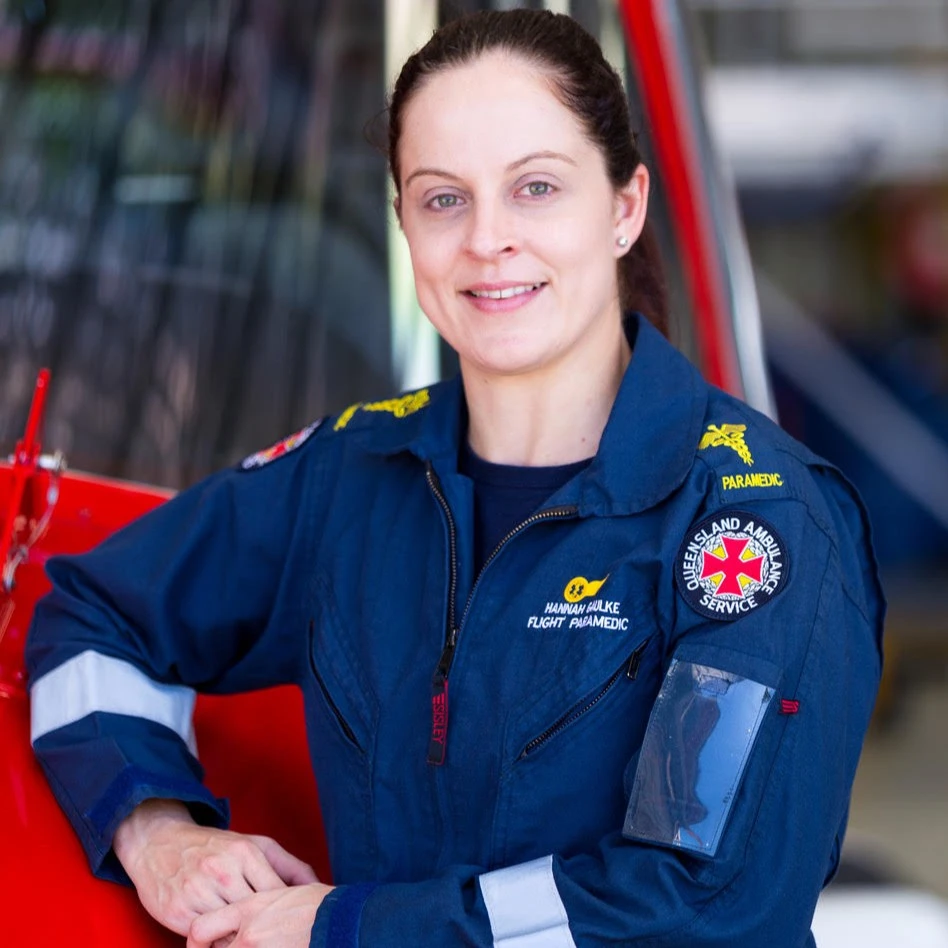
Hannah Gaulke is a Critical Care Paramedic with the Queensland Ambulance Service (QAS), currently working on the High Acuity Response Unit and as a Critical Care Flight Paramedic. She brings extensive clinical expertise to both frontline care and education. Hannah has contributed to major incident responses, advanced clinical education, and simulation-based training in her various clinical roles and as Senior Clinical Educator within QAS.
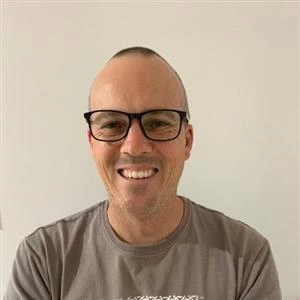
Dan is a LARU Paramedic and Clinical Educator based in Queensland, with over 20 years of experience in diverse clinical and operational roles across rural and regional settings. His career includes work with Children's Health Queensland, where he led patient safety and quality education initiatives and the Australasian College of Paramedicine where he works as a member of the Education Team. Dan is deeply committed to advancing Community Paramedicine, promoting safe, high-quality patient care, and fostering excellence in clinical education. He holds postgraduate qualifications in Clinical Education and Teaching, as well as Enhanced Patient Assessment and Critical Reasoning.
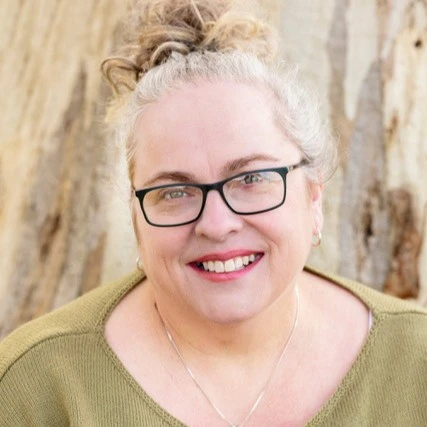
Mel has been working for SA Ambulance for 20 years, and was a paediatric intensive care RN. She is an intensive care, extended care paramedic, and has qualified as a Paramedic Practitioner through Deakin University. She has worked in paramedic education and is currently focusing her research on Hip Fracture Care in South Australia and working towards her PhD.

Dr Tim Makrides is an Associate Professor of Paramedicine at CQUniversity. With a background in executive leadership and system reform across paramedic systems in both Australia and Canada, he brings a unique perspective shaped by two decades of experience at the intersection of practice, policy, and research. His current work centres on the evolving role of paramedicine in modern healthcare, with a particular focus on system design, performance and modernisation. He’s also a proud dad to three energetic boys, which adds a healthy dose of chaos to life.

Dr Wayne Loudon is a paramedic, researcher, and academic based in Queensland, Australia, with a specialist focus on prehospital acute stroke care and digital health innovation. He has held diverse clinical, operational, and academic leadership roles. Wayne’s doctoral research informed clinical practice change within the Queensland Ambulance Service, and he continues to champion evidence-based, patient-centred care. In his current role as Executive Manager, Community Response Programs, Wayne is focused on enhancing community engagement, building innovative care pathways, and strengthening the interface between health systems and the public.

Angela is currently employed as a neurologist and stroke physician at the Royal Melbourne and Campbelltown Hospitals. She works on Australia’s first Mobile Stroke Unit (ambulance equipped with mobile CT) in Melbourne. She also is a stroke neurologist for the Victorian Stroke Telehealth network. She does outreach neurology clinics in Alice Springs, Darwin and Moree. She is a Scientia Fellow with the University of New South Wales. She works as a Senior Clinical Research Fellow for the Australian Stroke Alliance and completed PhD at the University of Melbourne focused on Stroke in First Nations people.

Dr Mardi Steere is the EGM of Medical and Retrieval Services for Royal Flying Doctor Service SA/NT. She is passionate about delivering healthcare for remote & underserved populations, and lived in Kenya from 2011-2018 where she worked as clinical director of a 350-bed hospital and co-developed sub-Saharan Africa’s first Fellowship program in Paediatric Emergency & Critical Care.
In her current role she leads multidisciplinary retrieval and emergency care across SA and NT with a focus on best practice and innovation. This has included development of a national Prehospital Electronic Health Record and Australia's first Virtual Emergency Centre. She is an Associate Professor at Charles Darwin University, as faculty for the Master of Aeromedical Retrieval, holds an MBA and is a graduate of the AICD. She also serves on the board of AMREF Flying Doctors.

A/Prof Ben Meadley is an experienced clinician-researcher whose work bridges clinical practice, human performance, physiology, and operational readiness in critical occupations. With nearly 30 years of frontline experience, including as an Intensive Care Flight Paramedic and Director of Paramedicine at Ambulance Victoria, he leads applied research into how stressors like heat, fatigue, and shift work affect performance in high-stakes environments. Ben has co-authored almost 50 journal articles, co-edited a the leading critical care paramedicine textbook, and developed validated assessment standards used internationally. He holds adjunct appointments at Monash University and remains active in clinical care, education, and international collaboration in paramedicine.

Dr Louise Reynolds is the Victorian Chief Paramedic Officer, Safer Care Victoria, Associate Professor in Paramedicine at ACU and Adjunct Professor, La Trobe University. She began her paramedicine career as a student paramedic with SA Ambulance Service before transitioning into research and academic roles. Louise was Australia’s first female paramedic to hold a doctoral degree, and she has extensive educational experience in vocational, undergraduate, and postgraduate programs across Australia, the UK, and South-East Asia. Louise’s research focuses on paramedicine workplace safety and has been co-editor of Understanding the Australian Health Care System five times and is co-author of the paramedicine chapter. Louise is actively involved in professional bodies such as the Australasian Council of Paramedicine Deans and the Australasian College of Paramedicine.

James Oswald is a Clinical Practice Guideline Specialist and a registered paramedic with a strong focus on evidence-based care, quality improvement, and communicating change. He has a Master’s of Public Health with a focus on health policy and clinical research. He plays a key role in developing and implementing clinical guidelines to support paramedic practice across Victoria. James co-hosts Clinical Conversations, a podcast exploring complex clinical issues in prehospital care, and has contributed to research on clinical guideline development and patient safety.
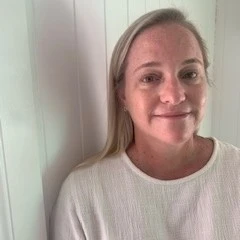
Amy is a Clinical and Counselling endorsed psychologist with 25 years’ experience working predominantly with a persistent pain population. Working with an adult population, Amy uses a transtherapeutic framework to meet the therapy needs of her patients. Amy holds a Masters in Science Medicine (PainMgt), a Masters in Counselling Psychologist and a Graduate Diploma in Psychology Practice (Clinical). Amy has worked across many workspaces in her time including federal government, research roles, supervision and now in private practice. Amy is passionate about working in persistent pain and empowering others to improve their quality of life whilst living with persistent pain.

Bill has worked as a paramedic academic and researcher at several Australian universities while also holding clinical appointments with Ambulance Victoria and the Queensland Ambulance Service. He is currently an elected Director to the board of the ACP and is a Life Member of the college, and Chair of the Paramedicine Accreditation Committee. In 2023 Bill received the award of Member of the Order of Australia (AM) for significant services to paramedicine education and research.

Matt has been a paramedic with Ambulance Victoria since 2009 and an intensive care (MICA) paramedic for the past decade. He is a Teaching Associate and PhD candidate with Monah University’s Department of Paramedicine, and a former board member and secretary of the Safe Airway Society. His PhD focuses on prehospital advanced airway management in Victoria, exploring trends, success rate, complications, and patient outcomes over time.
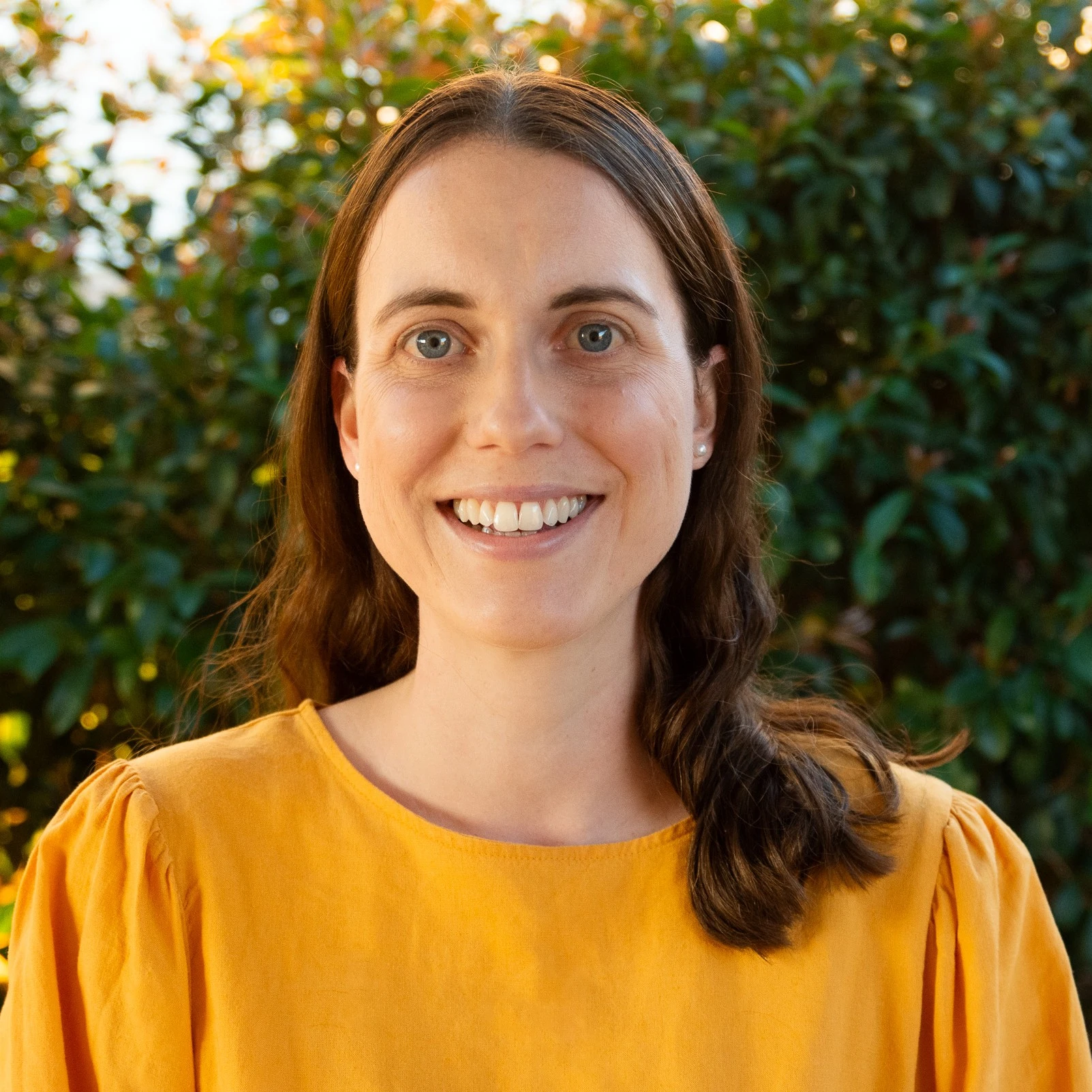
Julia is a Critical Care Paramedic, who has worked with the Queensland Ambulance Service for nine years and is currently working in Rockhampton as a Clinical Support Officer. In 2020, Julia completed her Graduate Diploma of Specialist Paramedic Practice, allowing her to complete the Critical Care Paramedic Internship, which she completed in 2022. Julia has since completed her Master of Specialist Paramedic Practice, with a focus on the applicability of mental rehearsal in paramedicine.
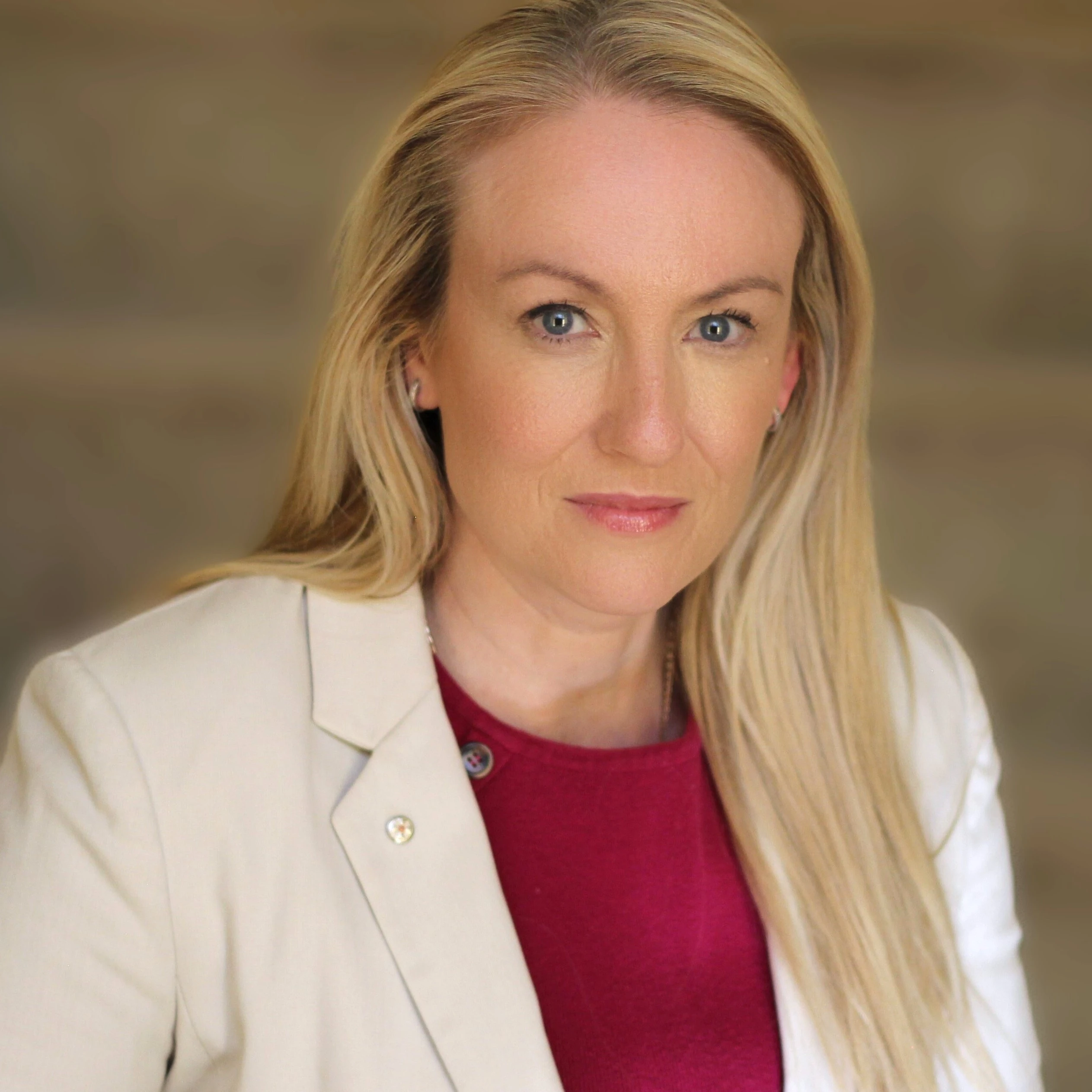
Kathryn is an Intensive Care Paramedic, Registered Nurse and Academic at Monash University. Her research areas include cardiopulmonary resuscitation, Culturally And Linguistically Diverse population access to emergency health services, and paediatric pain management.
Kathryn is a Deputy Editor of Paramedicine journal, member of the Australian Resuscitation Council (ARC) committee, the International Liaison Committee On Resuscitation (ILCOR), a Professional Member of the American Heart Association, and a Fellow of the Australasian College of Paramedicine.
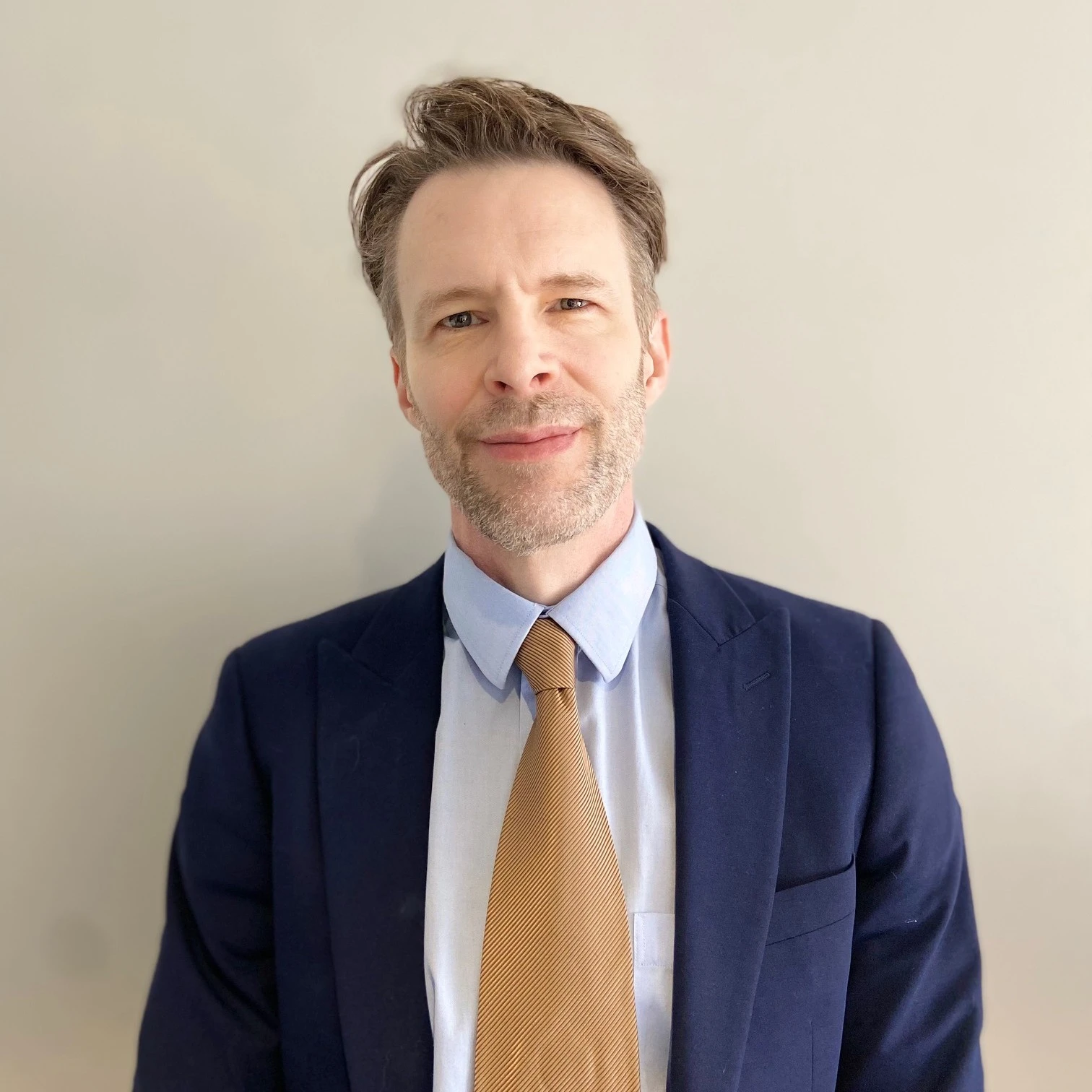
Dr. William (Will) Browne is a consultant geriatrician and physician–educator at Eastern Health in Melbourne. After completing physician and geriatric medicine training in Newcastle, he relocated to Melbourne in 2006 to pursue dementia research, focusing on neuroimaging and care pathways. Since joining Eastern Health in 2007, he has advanced to Clinical Lead for Research in the Department of Geriatrics and to Director of Physician Education at Maroondah Hospital.
He splits his time between: • providing inpatient clinical care for older adults, • delivering multidisciplinary consultation across the Eastern Health network, • teaching medical students, residents, and fellows, • and partnering with aged-care facilities to improve on-site clinical services.
His academic and teaching interests include: • hands-on mastery of the geriatric physical examination, • assessment and management of movement disorders such as parkinsonism, • and optimizing acute-care protocols for frail older patients.

Dr Eburn is a commentator on the law as it applies to the emergency services and emergency management in Australia. His blog, Australian Emergency Law (https://australianemergencylaw.com/) provides current and detailed analysis of the law. In recognition of his expertise in the area and for his contribution to law and paramedicine Dr Eburn was awarded an honorary fellowship with the College in 2020.
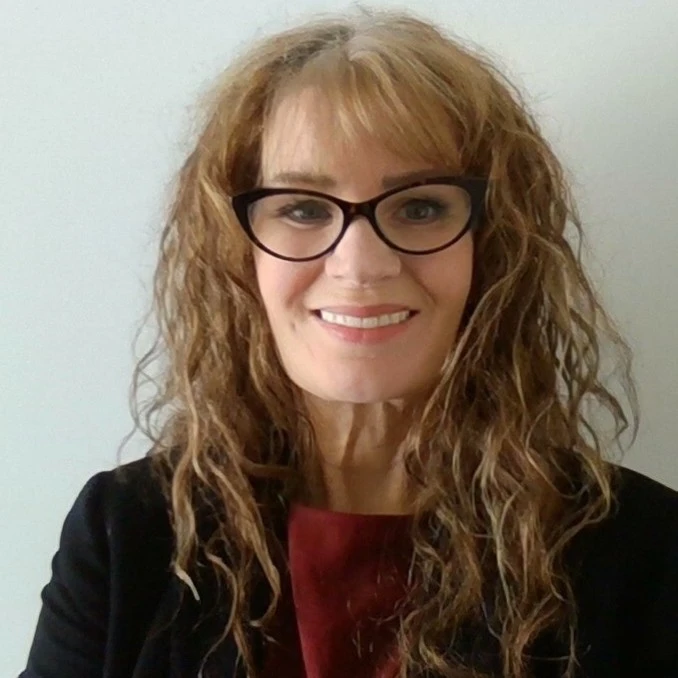
Alison Spicer is an experienced paramedic and Nurse Practitioner committed to transforming healthcare in regional and remote Australia. She specialises in developing clinical services and providing consulting support to design innovative, community-based models of care that prioritise hospital avoidance and primary care access. A strong advocate for paramedics working to full scope, Alison promotes alternative employment pathways beyond jurisdictional ambulance services. She has presented nationally and internationally and works to support system reform through sustainable funding models and tailored service design. Her work is driving the development of a future-ready paramedic workforce embedded within multidisciplinary, community-led healthcare environments

Dave has been a paramedic for some years and has undertaken many different roles in a continual effort to develop experience and professional wisdom, whether he is achieving it or not. He has worked for three ambulance services in on-road, aeromedical and wilderness roles. He is an educator for paramedicine, wilderness medicine and speciality training, including for the Australian Antarctic Program.

Don Gillies spent 45 years as a professional first responder, starting his career as a police cadet in 1977 before becoming a paramedic in 1982. He helped develop Ambulance Victoria's manual handling program and was also a driving standards facilitator. He received the Ambulance Service Medal in 2016 for his work in mental health and Ambulance Community Officer training. After walking the Kokoda trail in 2022, Don encountered the No Roads Foundation, a charity delivering healthcare to remote Papua New Guinean communities. He has since done three patrols with the foundation. He spends his spare time scuba diving and playing bass guitar.
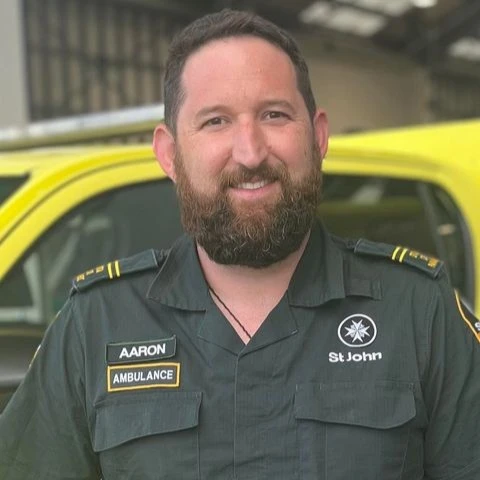
Aaron currently works in Ōtautahi | Christchurch located on the South Island's east coast in Aotearoa New Zealand. His day-to-day job primarily involves shift work on the critical care rapid response unit (ECHO unit), for Hato Hone St John, the principal EMS provider nationally. He holds degrees in Immunology and Paramedicine, has completed postgraduate study in Emergency Management, and recently earned his Master of Paramedic Practice. This recent study involved conducting an observational cohort study looking at 'Falls associated with fractures in older people and whether rurality affected mortality'. He holds endorsements as a HAZMAT medic and as a Cat2 USAR Heavy Rescue Medic for NZL-1. Recently, he held portfolios as a subject matter expert in Trauma and Cardiology, which included supporting the national and local patient pathways with other allied health services, to improve patient outcomes and service delivery. His days off are spent with his wife, navigating the challenges of being new parents to an energetic and opinionated 1.5-year-old, as well as a newborn due at the time of the conference.

Michelle is a Teacher Practitioner in RCSI School of Medicine and a Lecturer in Paramedicine in University College Cork; a registered Advanced Paramedic, Tutor and Examiner with the Prehospital Emergency Care Council (Paramedic regulator) in Ireland. She is an approved CISM Instructor, with the International Critical Incident Stress Foundation (ICISF) and holds a Masters in Psychological Trauma from University of Nottingham. She is currently undertaking a PhD with Monash University in Australia, exploring additional social support pathways for emergency services personnel.
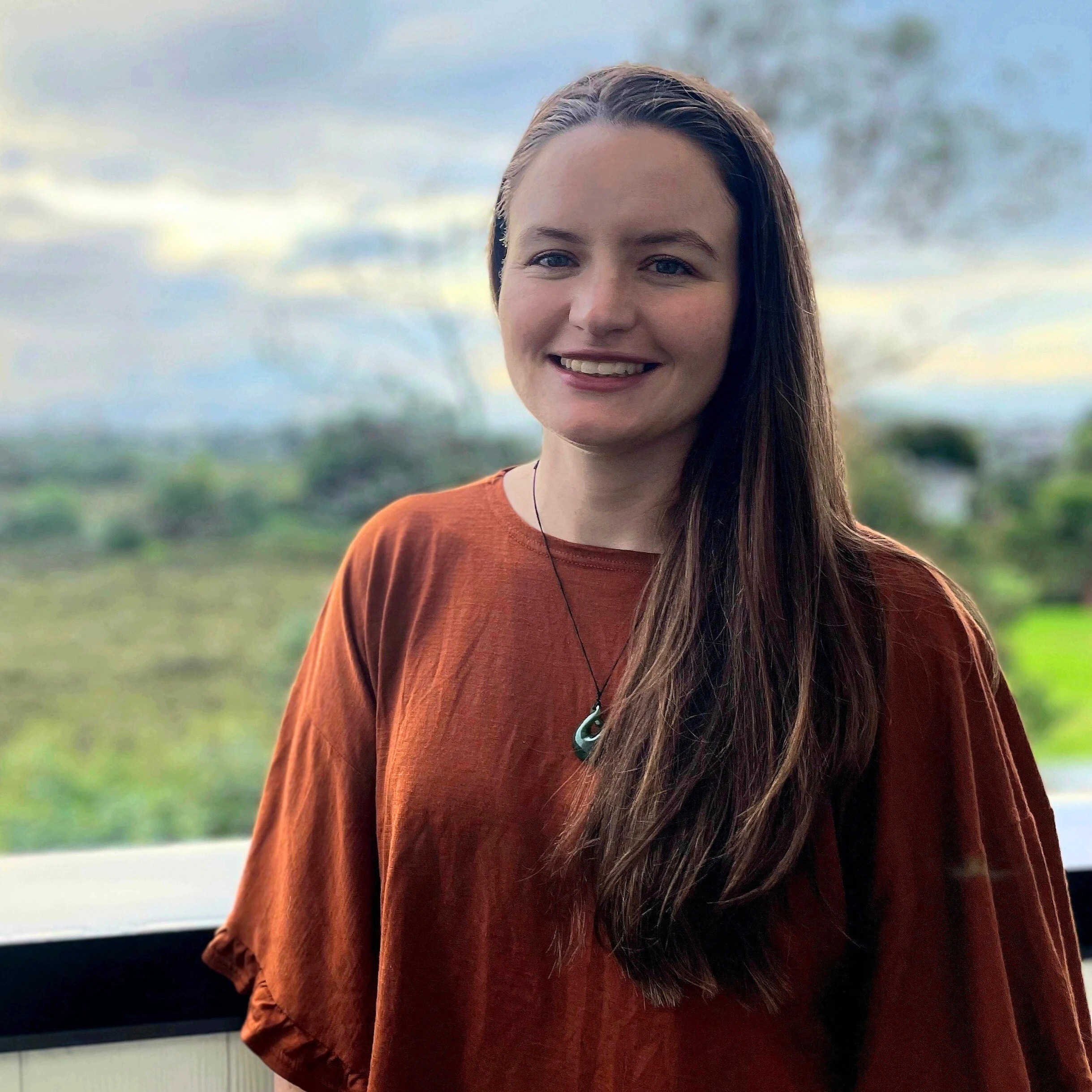
Eillish (Ngāpuhi) is a professional teaching fellow and registered nurse with a background in emergency nursing. Currently completing her PhD, Eillish’s research seeks to understand how we can better support the needs of families during death and dying in pre-hospital and emergency care settings. In particular, her research focuses on the experiences of Māori and aims to assist systems in providing culturally safe care during death, dying and bereavement.
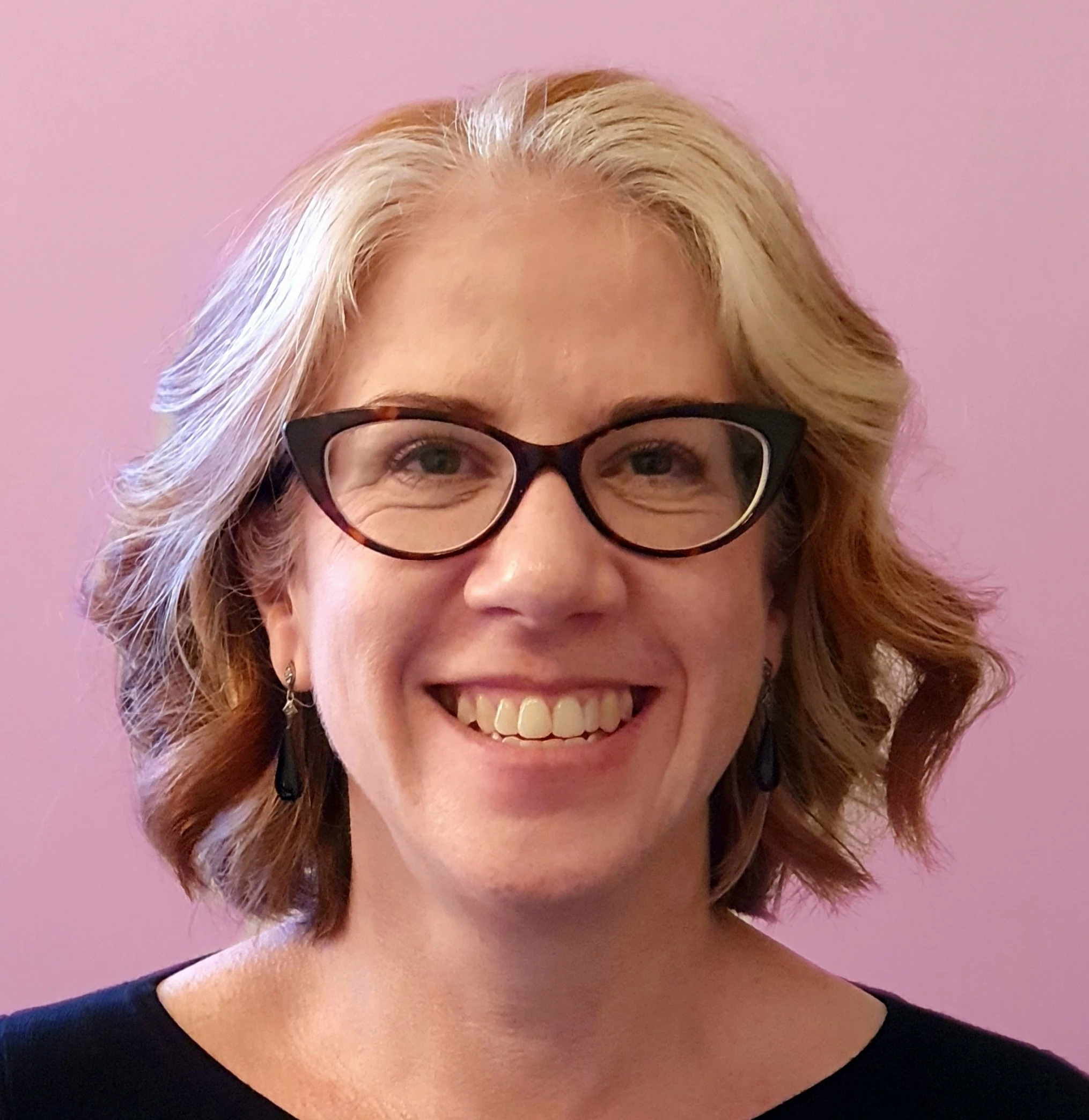
Liz is an Associate Professor in the WSU Paramedicine program and a fellow of the Australasian College of Paramedicine and Senior Higher Education Fellow. She is passionate about teaching and research opportunities that will shape the future of paramedicine through workforce innovations and engagement with diverse populations. She currently leads the Australasian Workforce Survey Research and supervises12 HDR students developing the next generation of researchers.
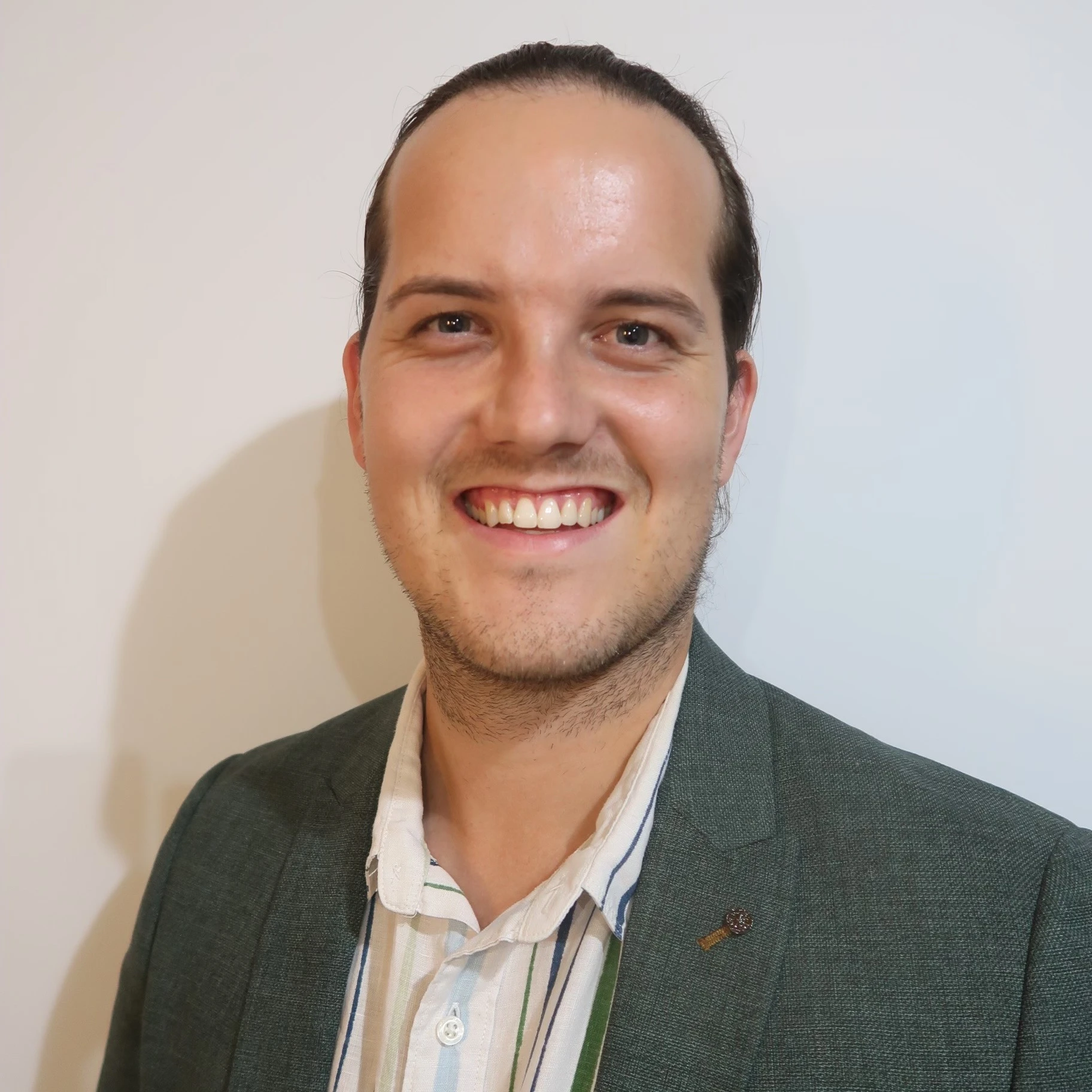
Matt Ferris is a PhD candidate and paramedic, whose research focuses on fatigue management and mitigation in the out-of-hospital setting. His doctoral work evaluates the use of Fatigue Monitoring Tools, paramedics attitudes and experiences of fatigue management and the role rest breaks play in fatigue mitigation. With a background in regional and remote healthcare, Matts work aims to inform evidence-based strategies that enhance paramedic safety, wellbeing and performance - with a direct flow on effect to improving patient care.
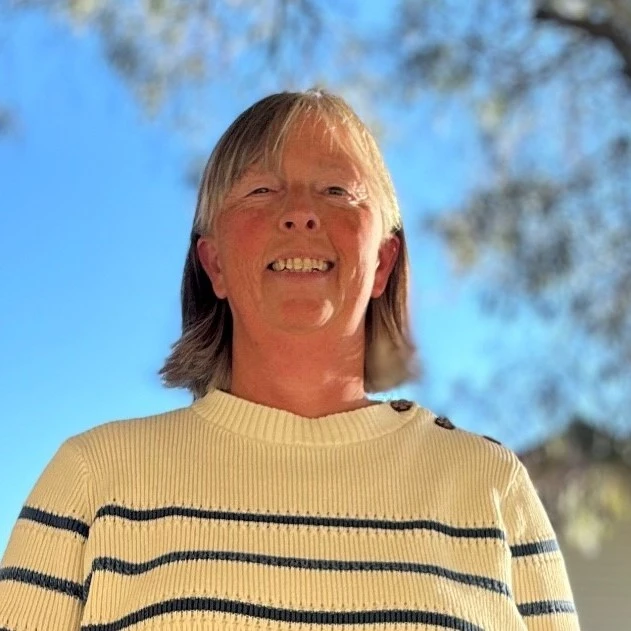
Clare Sutton is a Senior Lecturer in Paramedicine at Charles Sturt University and a passionate advocate for paramedic wellbeing. She has extensive experience in the emergency services sector with over 20 years frontline experience, 12 years in education and she is the former Chair of the ACP Paramedic Wellbeing Group. Her research focuses on resilience and the promotion of health and wellbeing in emergency service workers, students, and volunteer responders.
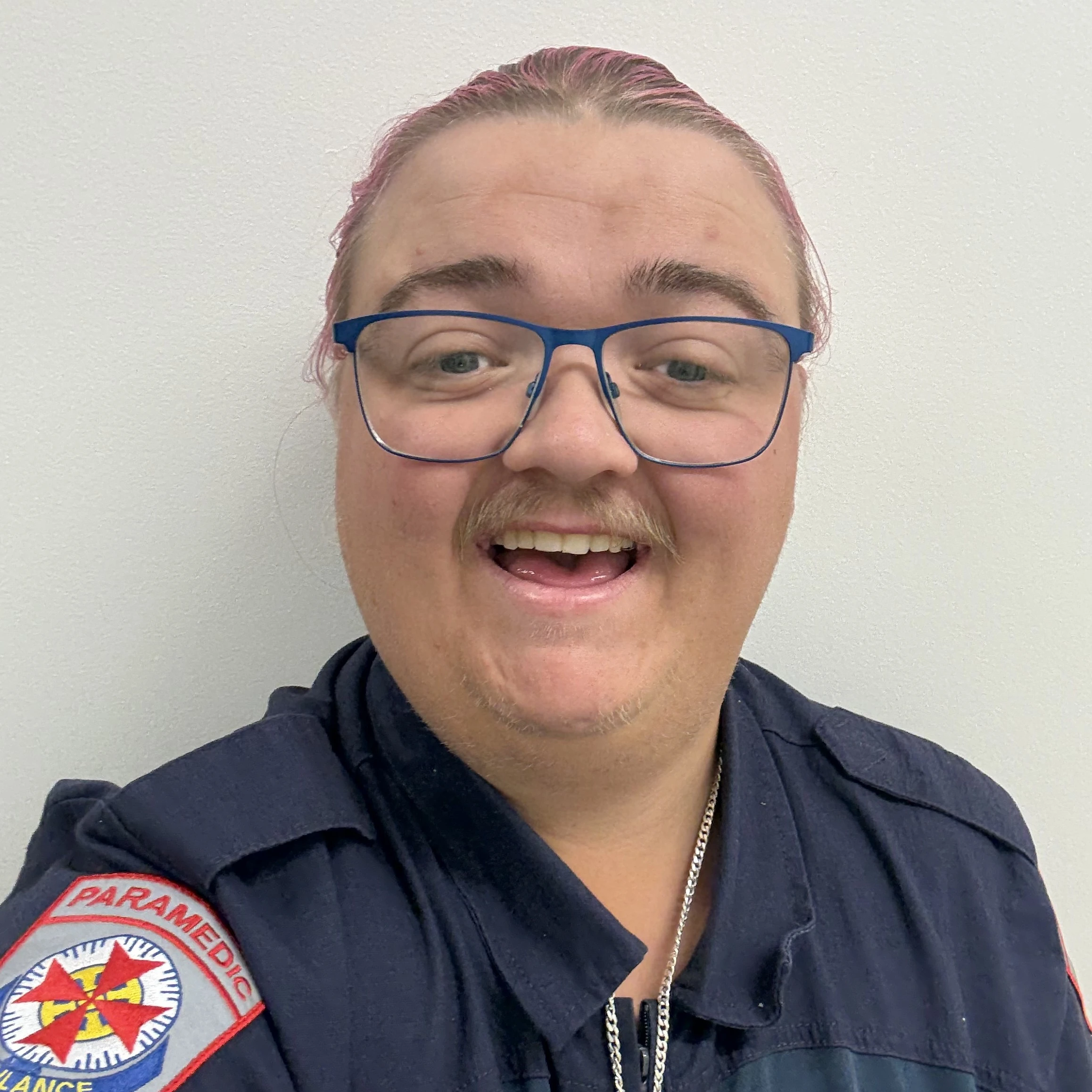
Edward Stacey is a paramedic and postgraduate researcher at Monash University, with clinical experience across regional and metropolitan ambulance services in Australia and the UK. He holds a Master’s in Paramedicine with a focus on intensive care and health system improvement. His current research uses interrupted time series analysis to evaluate patient wait times within the emergency department. Edward is particularly passionate about alternative care models, data-informed decision-making, and improving patient outcomes through innovative, integrated prehospital care strategies.

Lorna Martin is a registered paramedic, lecturer in the Department of Paramedicine at Monash University, and a PhD candidate investigating frailty assessment and management in the prehospital setting. Her doctoral research focuses on improving care quality for vulnerable populations through the systematic implementation of frailty screening.
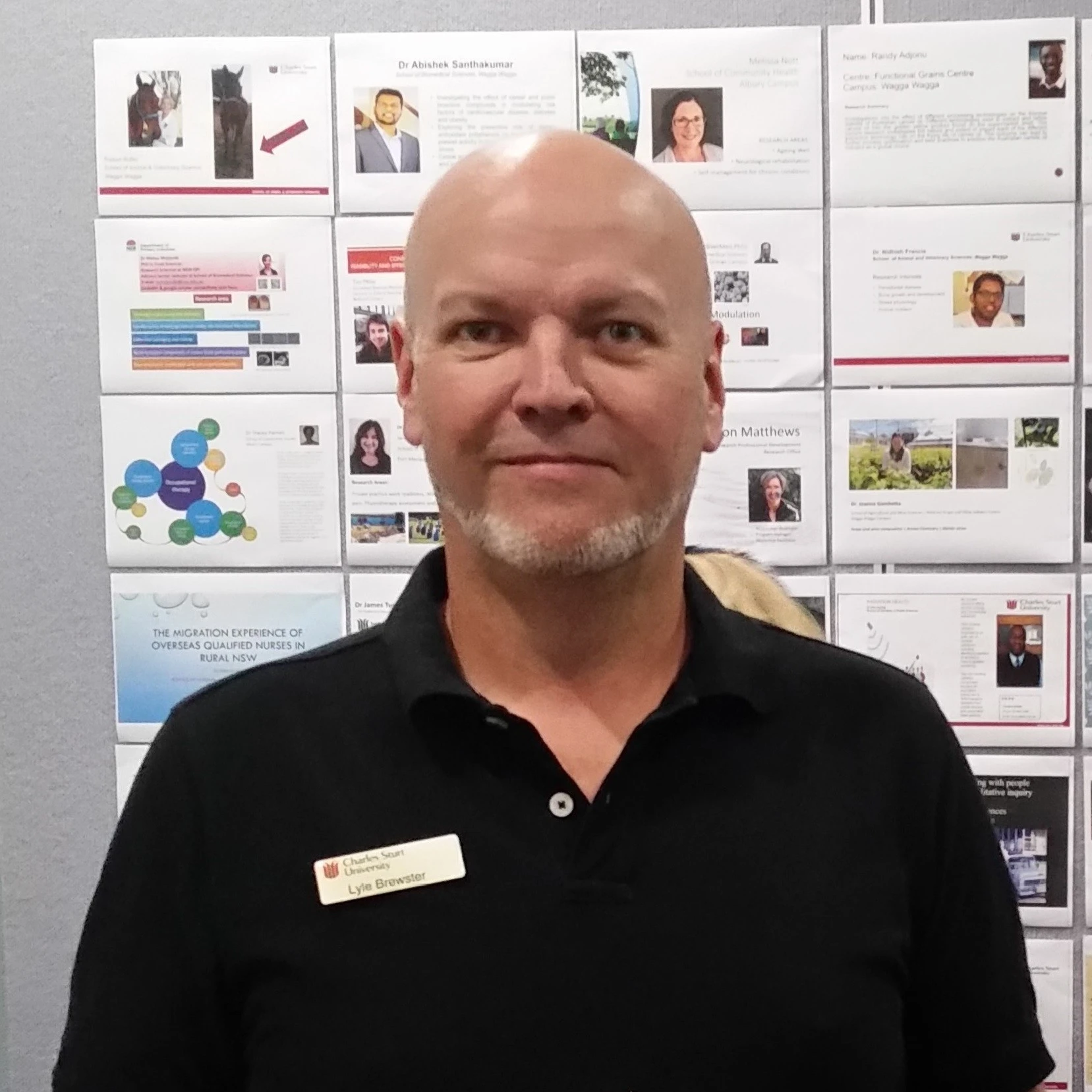
Lyle Brewster is a paramedic academic with over 35 years of experience across Australia and New Zealand. He began his career with the Queensland Ambulance Transport Brigade in 1989, later working in Brisbane and then with St John Ambulance in New Zealand, where he qualified as an Intensive Care Paramedic and served on the Taupō rescue helicopter. Lyle also held an educator role with St John’s Clinical Education team. He holds a Master of Health Science, a Postgraduate Certificate in Emergency Management, and a Bachelor of Health Science (Paramedic). He is currently undertaking a PhD focused on paramedic safety.
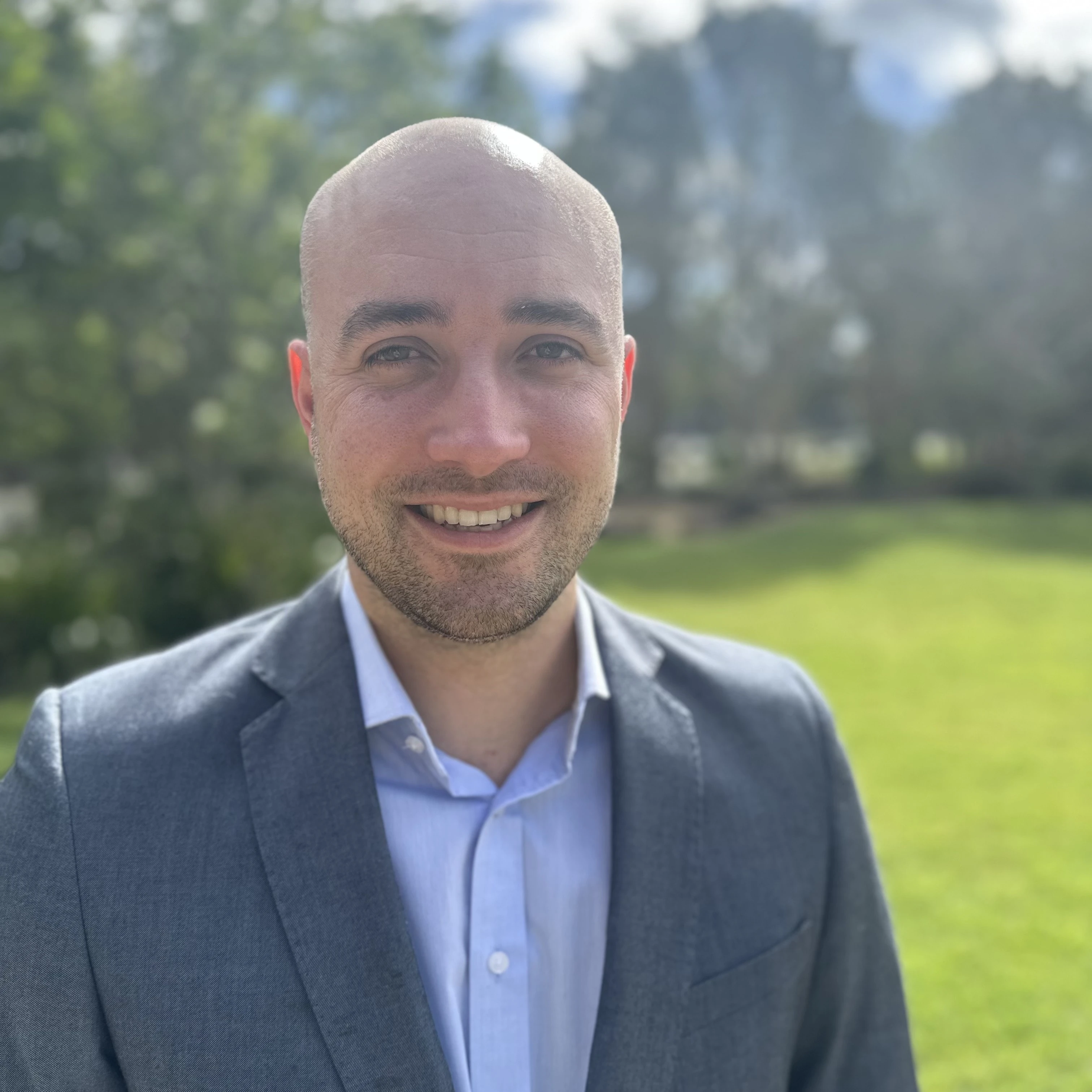
As well as working clinically, Matt teaches, authored a textbook chapter on Shock, works on two national college project teams, and reviews for a Q1 medical journal. He is currently a Westpac Scholar and inaugural University of Melbourne MDHS PhD Award recipient, and his undergraduate first class honours thesis won a University Medal and Best Presentation at two international conferences. He lives on the Sunshine Coast with his partner and their beautiful golden retriever puppy (called Waffles).
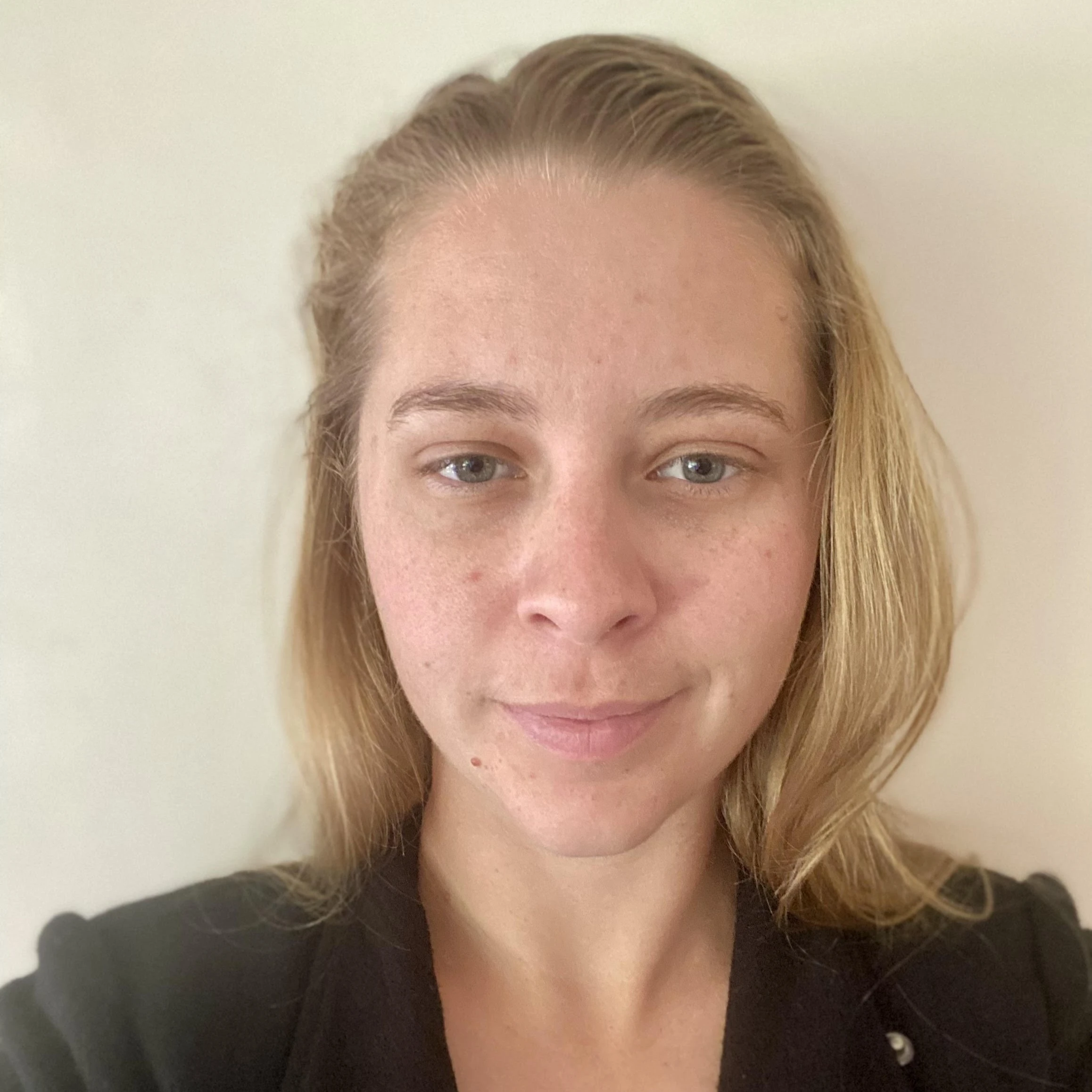
Mostyn has worked as an Advanced Care Paramedic in a variety of metropolitan, regional and rural locations across Queensland, Australia for the past 6 years. During her master's degree, she led a research project evaluating changes to paramedic clinical practice since introduction of a palliative care clinical practice guideline. She has a special interest in evidence-based development of alternate referral pathways within paramedicine, particularly in the area of community palliative care.
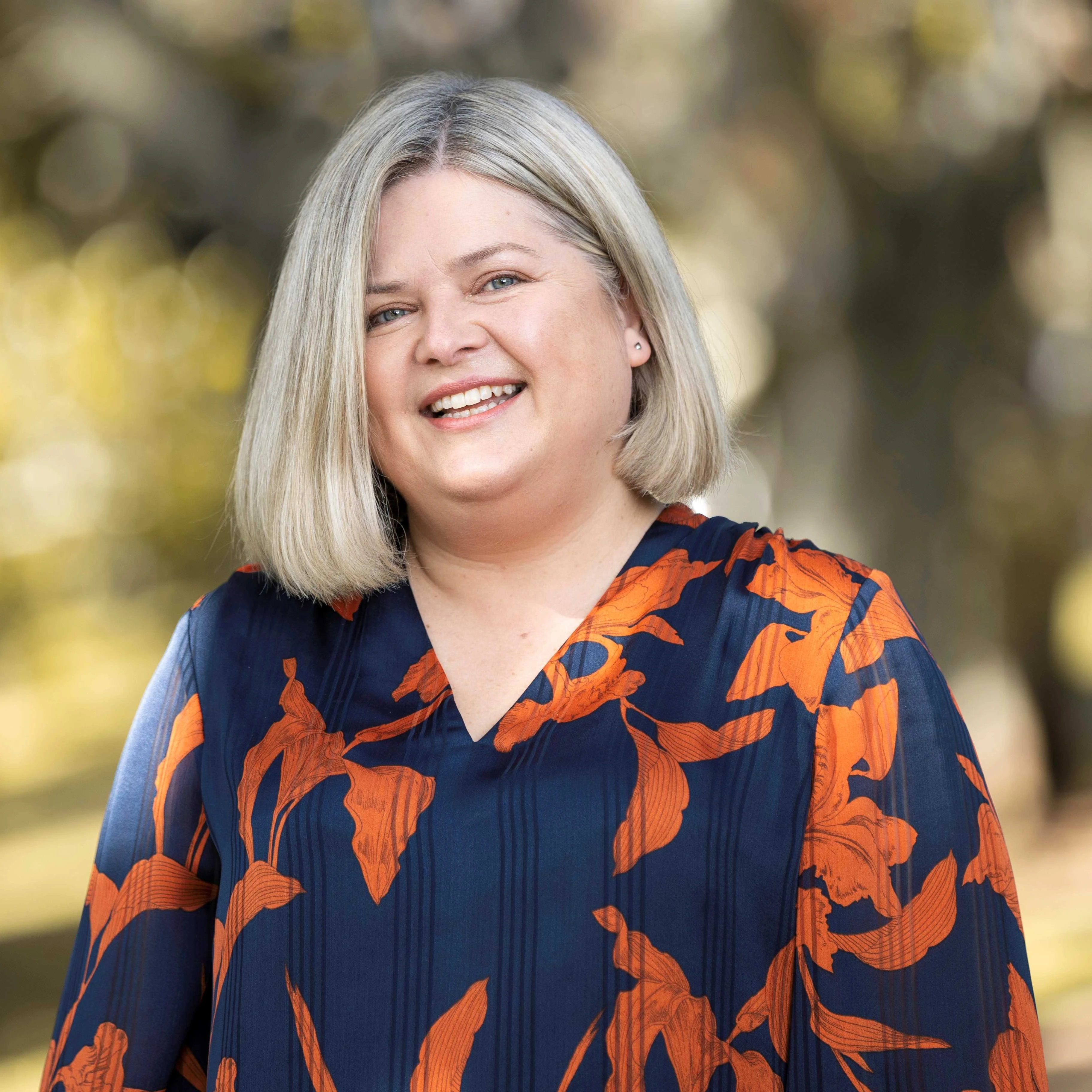
Dr Natalie Anderson is a Senior Lecturer and practising Registered Nurse with over 25 years of clinical experience in emergency, prehospital, and intensive care settings. Her interdisciplinary background in nursing and health psychology informs research focused on improving patient and whānau (family) experiences of death, dying, and bereavement in acute care. She is also a committed clinical educator, dedicated to enhancing the preparation and support of health professionals.
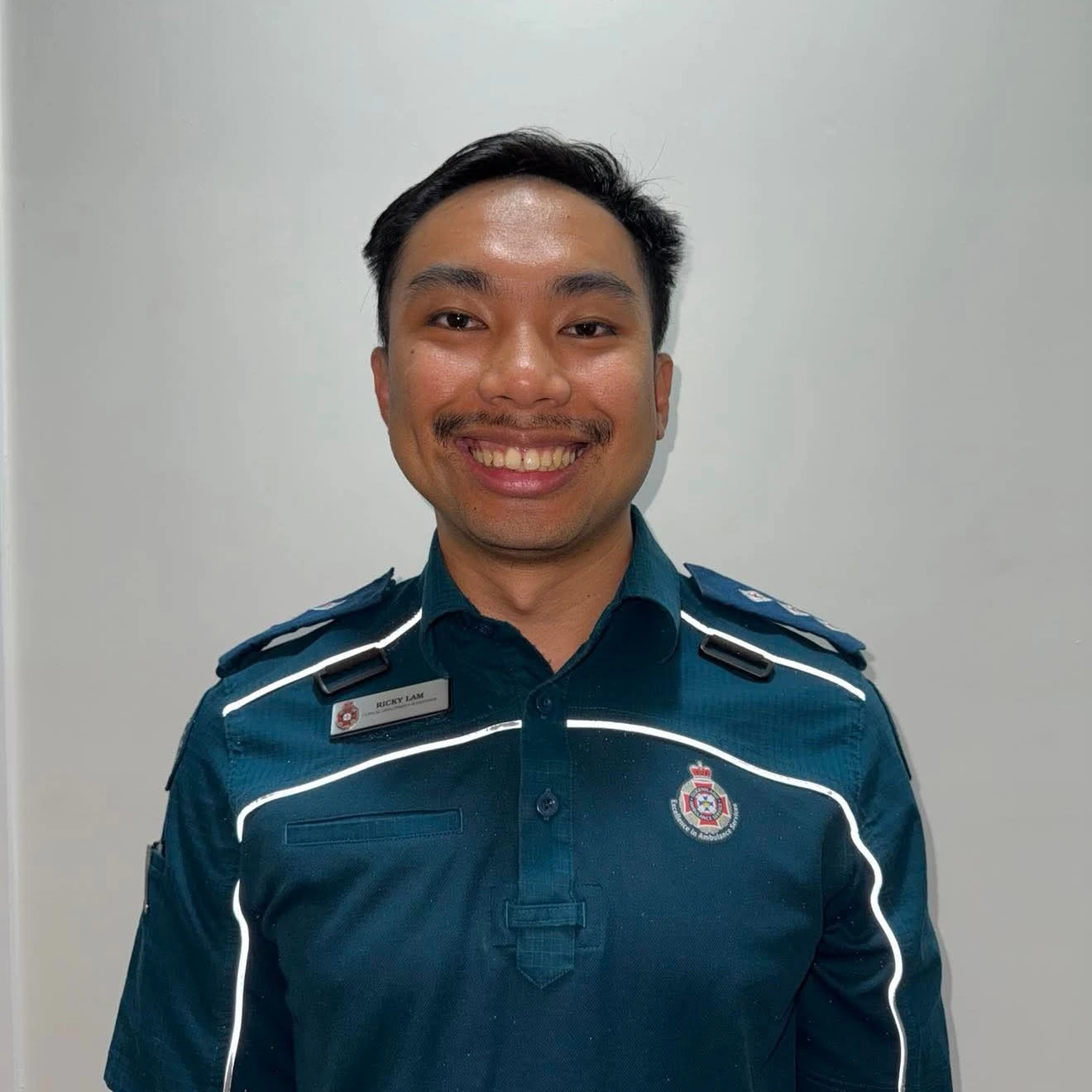
Ricky is a Clinical Deployment Supervisor in the Queensland Ambulance Service with experience in remote and isolated practice, resource management, and telehealth. Through various roles, Ricky has led multidisciplinary teams in clinical deployment, healthcare navigation, and ambulance service-delivered telehealth. His work is grounded in research and evidence-based practice, having published peer-reviewed literature on cultural competence training in paramedicine. Currently, Ricky is combining his interests in telehealth and culturally and linguistically diverse practices by exploring ambulance service delivered telehealth outcomes of non-English speaking patients.
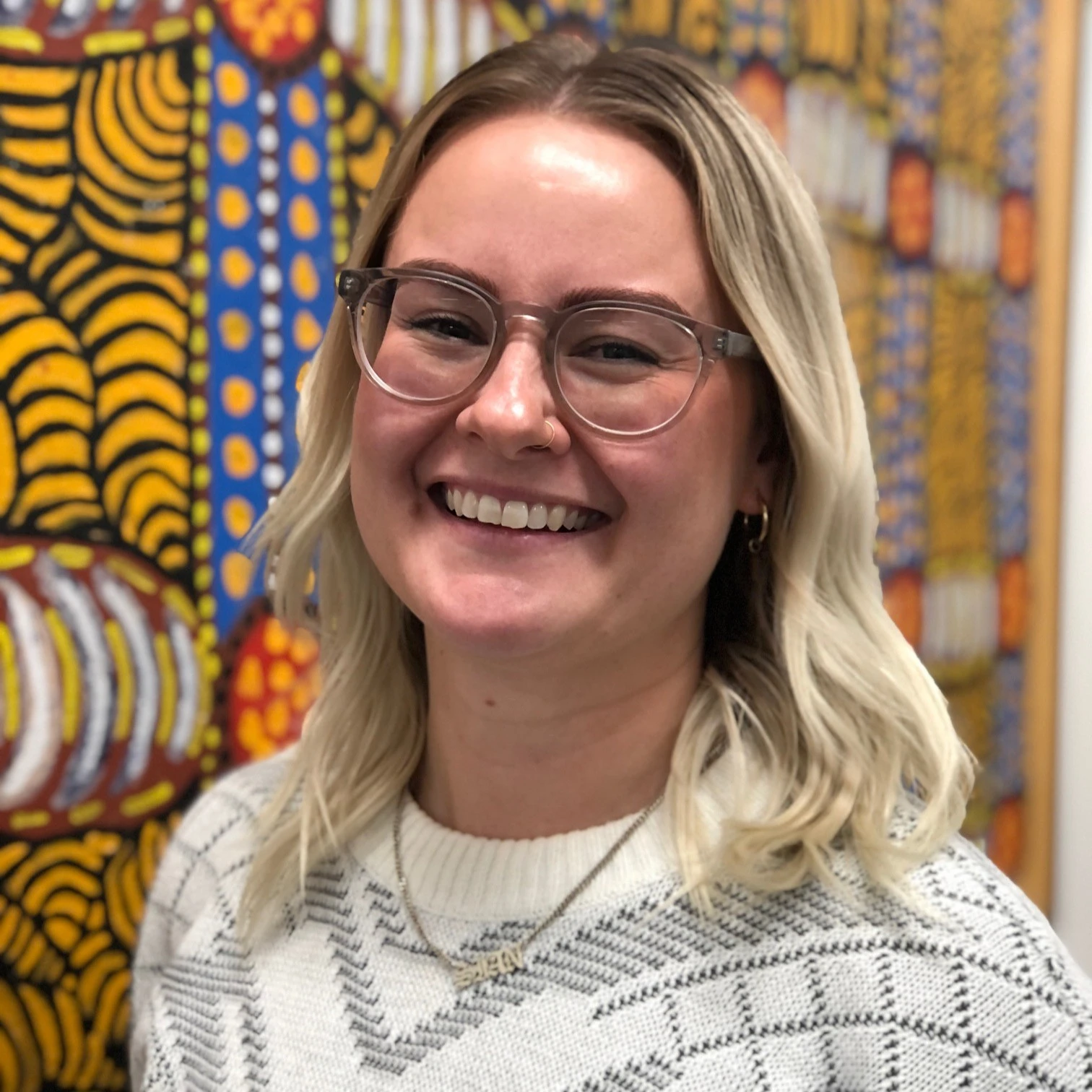
Sian is a registered paramedic in South Australia and PhD candidate at Flinders University. Her expertise lies in sleep, psychology, and qualitative research methodologies. Her PhD thesis explores the lived experience of fatigue and sleep loss among Australian paramedics utilising a qualitative, systems-informed approach.
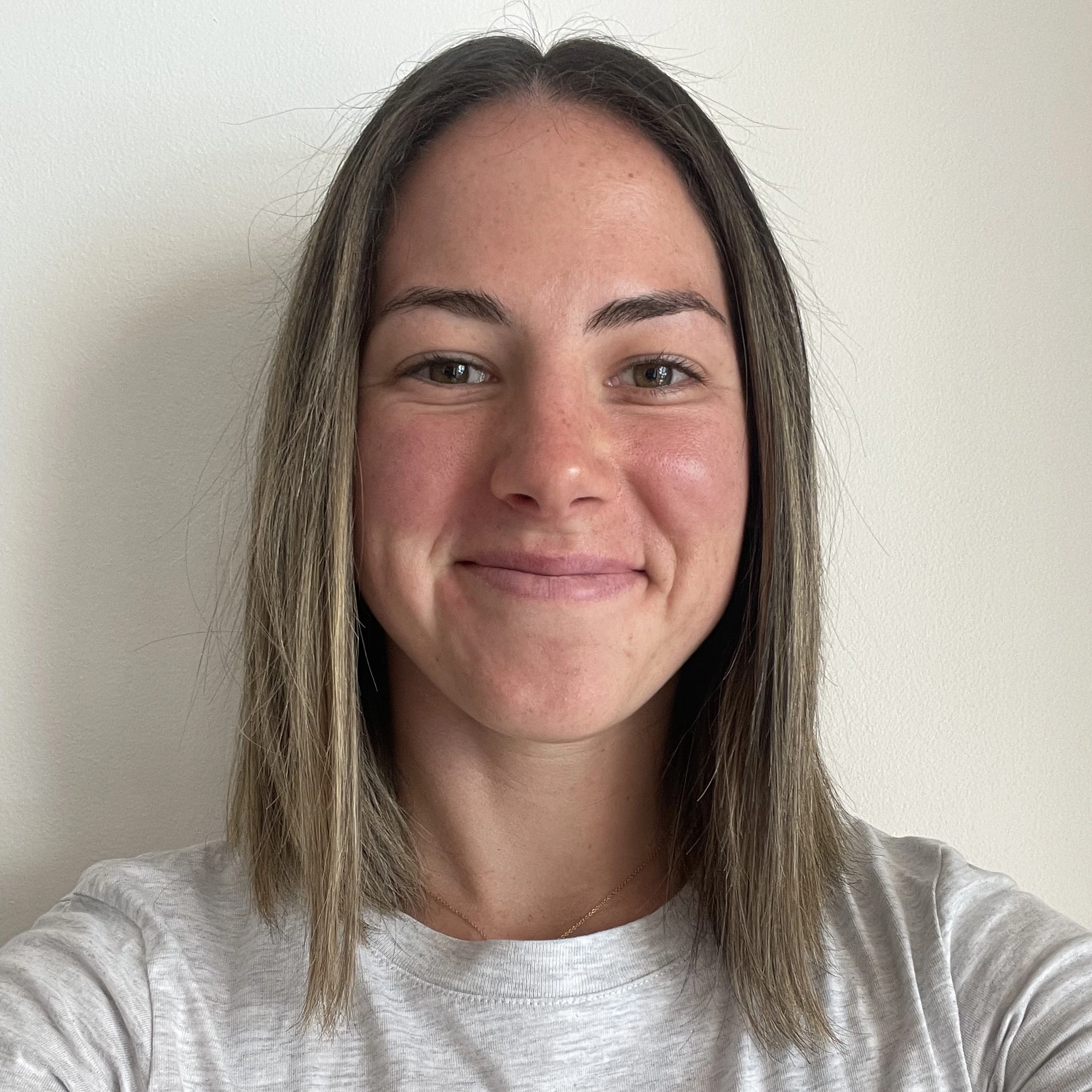
Sophia Flanagan-Sjoberg is a paramedic, mentor and research student based in South Australia. She is a passionate provider of equitable front line health care. Her research focus lies in paramedicine policy implementation with the aim to improve service delivery models.
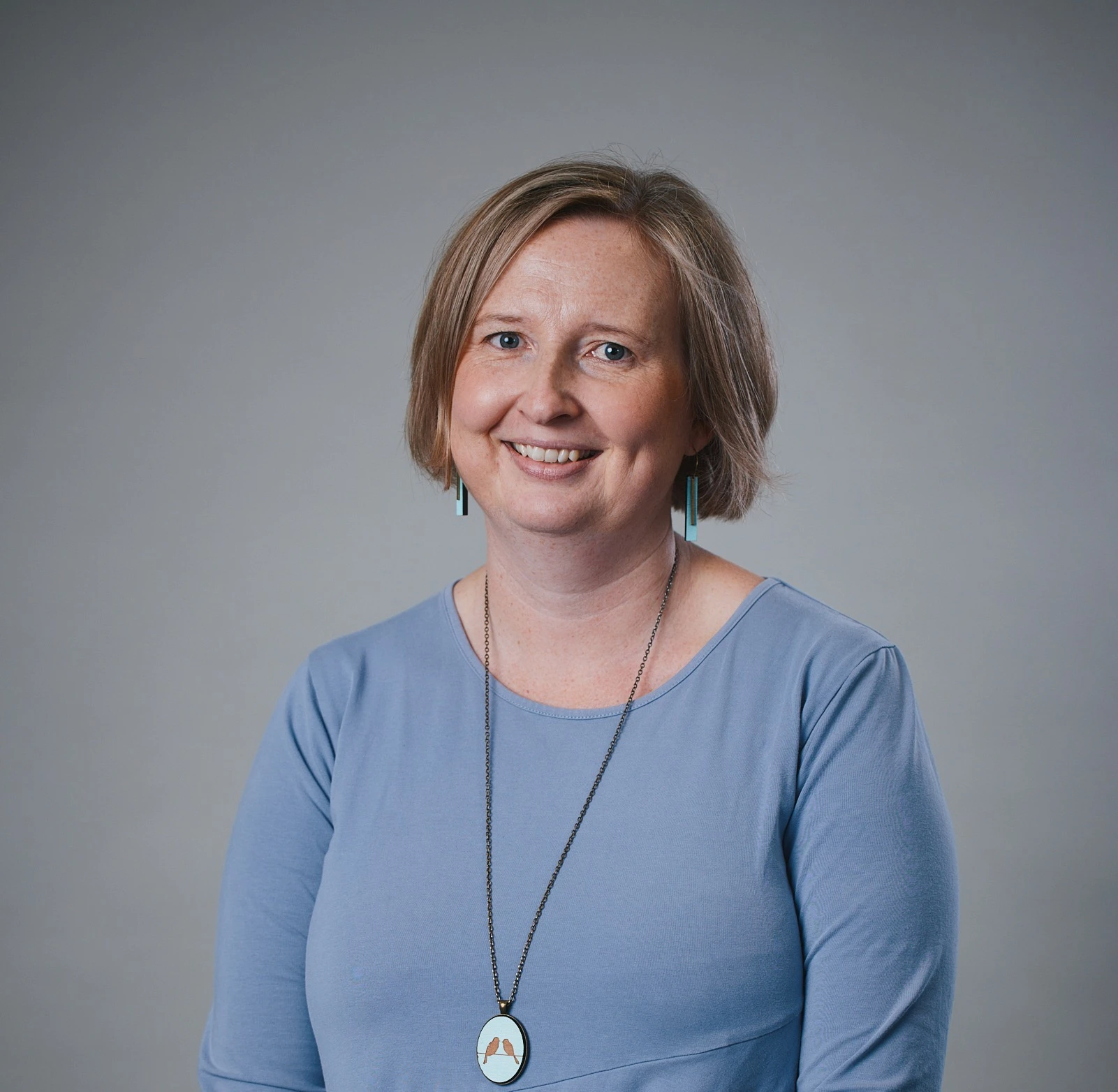
Dr Verity Todd is a Senior Lecturer within the Department of Paramedicine. Her research interests include evaluating early warning systems to detect clinical deterioration in the prehospital setting and innovative community-based interventions, such as the use of trained community responders, to support emergency response.. Verity is partially supported by the NZ Heart Foundation as a Co-Investigator on the First Responder Shock Trial (FIRST). Verity has experience as the Clinical Research Fellow at the Hato Hone St John ambulance service.
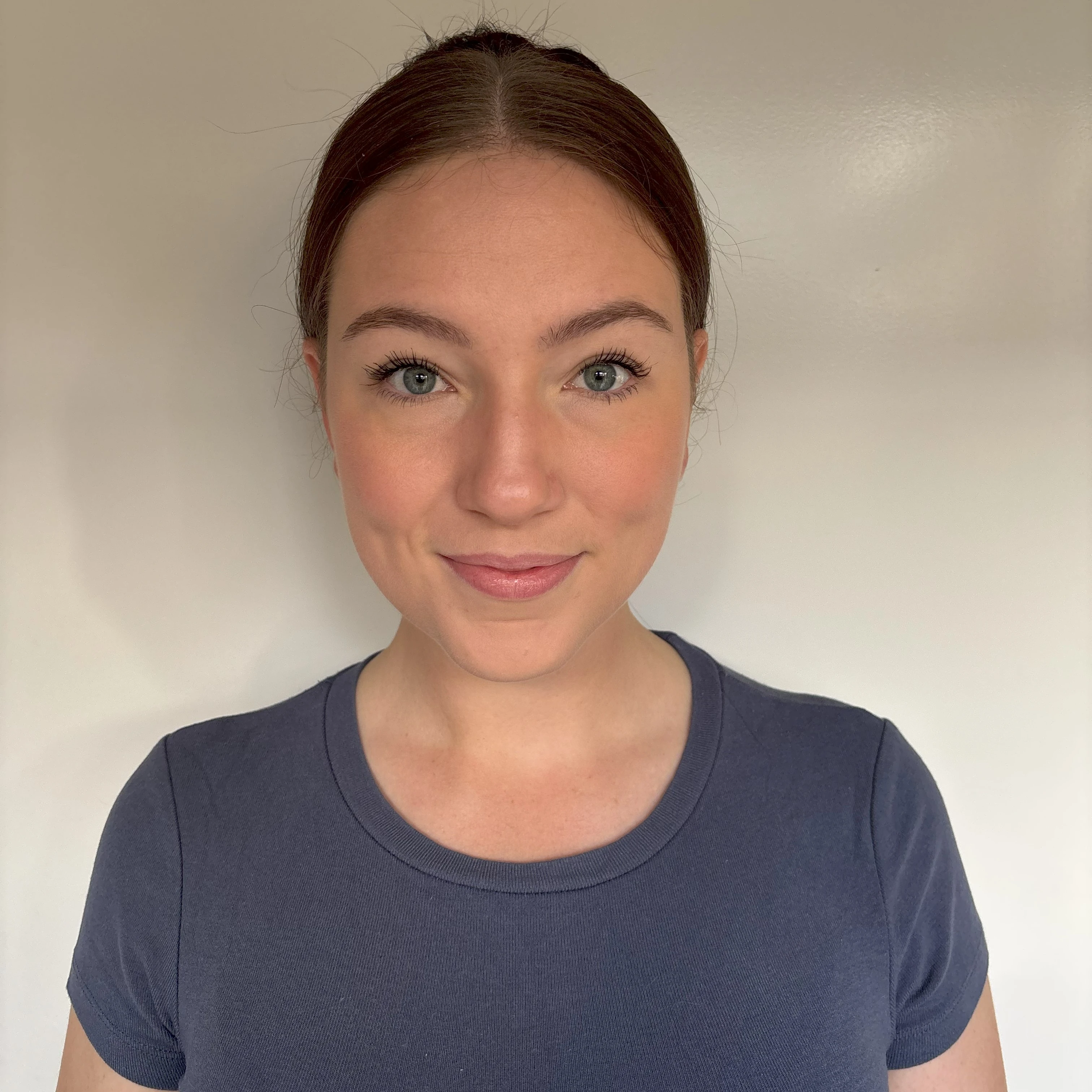
Alessia is a registered paramedic and early-career researcher. Her honours research explored the development of national capabilities for Advanced Practice Paramedics (APPs) in Australia. Alessia balances her clinical work with a passion for research and teaching, bringing energy and curiosity to each. She is committed to contributing to the shaping of paramedicine’s future through evidence-based innovation, and meaningful collaboration.
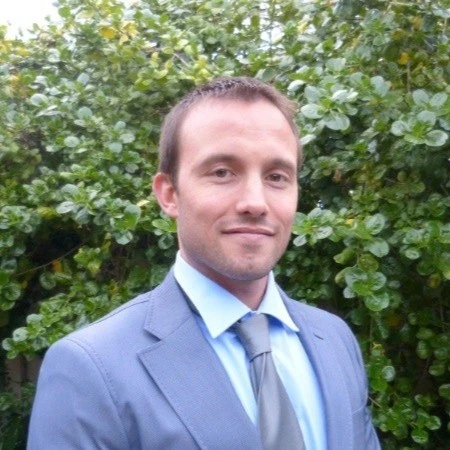
Jean-Paul (“JP”) Veronese is a Lecturer in Paramedicine at Griffith University, where he has taught since 2018 and currently leads simulation and assessment within the program. He has been a practising paramedic for 20 years, currently working as an Advanced Care Paramedic with the Queensland Ambulance Service. Prior to moving to Australia, he served 13 years in South Africa’s State Ambulance Service in critical care, education, and leadership roles. JP holds a Master’s in Emergency Medicine (2015), has published nationally and internationally, and is currently completing a PhD focused on using performance-based assessment to support job readiness in paramedicine.
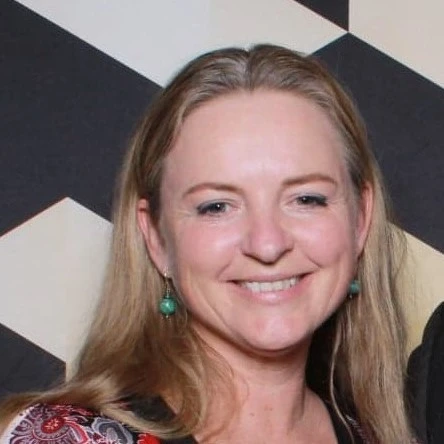
Associate Professor Sonja Maria is a paramedic academic at Charles Sturt University and Honours Adviser for the School of Nursing, Paramedicine and Healthcare Sciences. Her research focuses on out-of-hospital care, clinical practice guidelines and implementation science, with a particular interest in rural and regional contexts. She chairs the Clinical Practice Guidelines Group at the Australasian College of Paramedicine. Sonja supervises higher degree students and collaborates with ambulance services across Australasia.